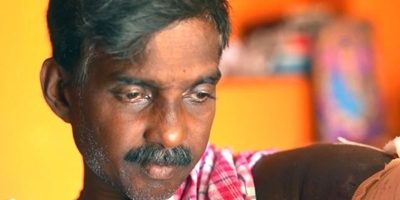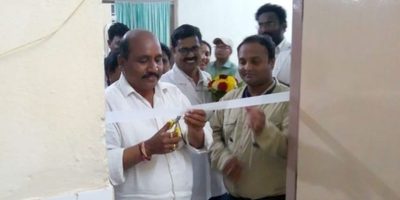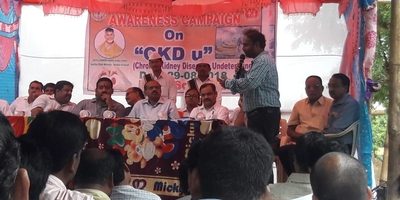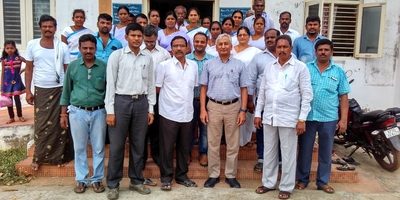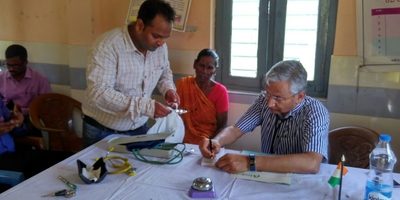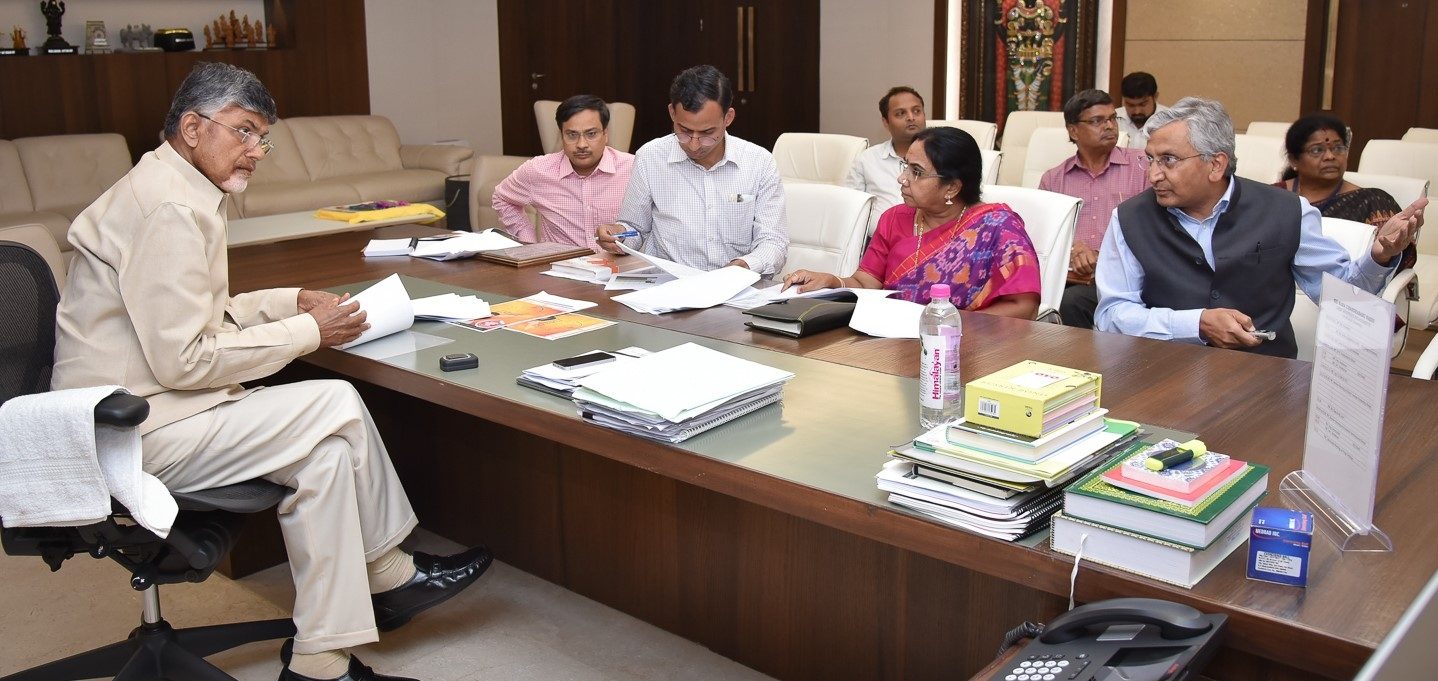
High level review meeting on Stop CKDu held at Andhra Pradesh Chief Minister's Secretariat
A high-level review meeting of STOP CKDu: Study to Test, Operationalize Preventive approaches for Chronic Kidney Disease of Unknown Etiology was held at the Secretariat of the Andhra Pradesh Chief Minister Shri Chandra Babu Naidu on June 9, 2018.
Those present at the meeting included Dr Poonam Malakondaiah, IAS, Principal Secretary, Ministry of Health and Family Welfare Department, Government of Andhra Pradesh; Dr Jitendar Sharma, Advisor to the Govt., Ministry of Health and Family Welfare, Department of Andhra Pradesh; Dr Aruna Kumari, Director, Health Medical & Family Welfare, AP; Dr. Vivekanand Jha, Executive Director, George Institute for Global Health (TGI), India and Dr. Balaji Gummudi, Senior Project Manager, TGI, India.
At the meeting, the Chief Minister underscored the need to take urgent measures for preventing kidney disease. Officials were asked to ensure that mineral drinking water is provided to people in areas affected by the disease.
Chief Minister also asked the project team to start activities in a mission mode by undertaking awareness campaigns and conducting strategic communication activities in close collaboration with the district administration. He also asked the project team to prepare a poster highlighting the Do and Don’ts for kidney diseases.
For her part, Ms Malakondiah recommended that research activities and leveraging the government led service/care delivery activities to gain confidence in the public should go on simultaneously.
In his project review, Dr Vivekanand Jha presented an overview of the aims and objectives of the STOP CKDu project, the areas selected for the study and findings from the secondary analysis of the Andhra Pradesh Govt screening data. He also outlined the progress made so far and the community awareness activities conducted.
He said training of Medical officers and Hospital superintendents on identification, diagnosis, investigation and management of CKD using tools developed by International Society of Nephrology has been done.
Dr Jha informed that speciality clinics at the Primary Health Centre level (Akkupalli and Battigalluru) have been organized as part of which he interacted with 88 CKD patients and examined their medical records.
A clinical guideline for the management of chronic kidney disease at the PHC level was developed, reviewed by the Technical Advisory Group and submitted to the Health Department. Additionally, a list of essential medicines for the management of chronic kidney disease at PHC and CHC was developed and submitted to Health Department.
It was recommended that the use of NSAIDs (diclofenac) injections at PHC level should be severely limited and their sale controlled as well. Provision of e supply of drinking water for workers in cashew fields and mandatory annual screening of kidney function by GFR estimation after the age of 20 should be done.
Among other suggestions Dr Jha said transplant and AV fistula capacity in public sector hospitals should be strengthened along with an increase in dialysis beds. Mobile clinics can help further outreach, it was added.





